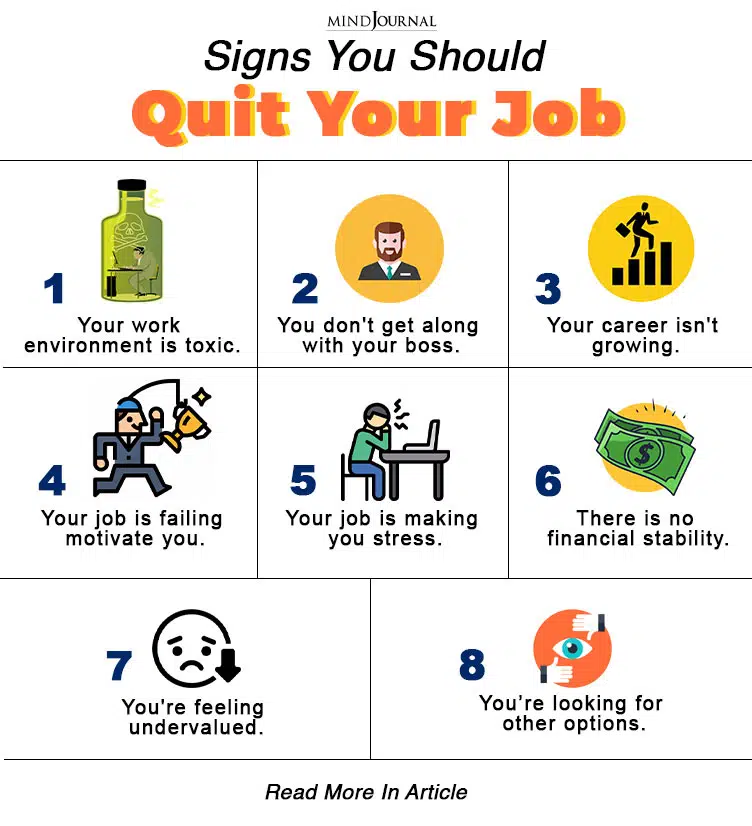Do you have a horrible boss? Do they make the work environment toxic and take credit for your efforts? Is working with a narcissistic boss making you stressed, anxious and depressed? Then here’s how to deal with a narcissistic boss.
Who is a narcissistic boss?
A narcissistic boss is someone who has traits of narcissistic personality disorder and displays toxicity in their behavior and interactions with others. They likely have an inflated sense of self-importance, a constant need for admiration, and a lack of empathy for others.
Narcissistic bosses tend to be highly self-centered, grandiose, and exploitative. They often believe that they are special and deserving of admiration and respect, and they expect others to recognize their superiority.
Narcissistic bosses may have charming and charismatic personality that initially draws people towards them. They may be highly confident and persuasive, which can make them effective leaders.
However, this confidence can easily turn into arrogance and a sense of entitlement, causing them to act in ways that are harmful to their employees and the organization.

Related: What Is A Narcissist? A Primer For The Lay Person On Narcissism
Researchers have found that “Narcissism, a common psychological and stylistic trait of senior managers, has been shown to have an impact on subordinates’ psychology and further provoke their negative attitudes and behaviors, such as cynicism, low job satisfaction, silent behavior, and turnover intentions.”
Dealing with a narcissist at work can be challenging as toxic bosses and managers tend to prioritize their own interests and desires above those of their employees.
They can create a toxic work environment that negatively impacts the mental health and well-being of employees. They may be challenging to work with and may not take responsibility for their mistakes.
While some “moderate level of leader narcissism” can result in “the best team performance”, leadership behaviors shown by narcissists, in the long run, can turn into destructive leadership and “derail” team performance.
But before we can learn how to deal with a narcissistic boss, we need to understand what makes them toxic.
Traits of a narcissistic boss
They often exhibit a number of toxic behaviors at the workplace that can often demotivate their employees and negatively affect their productivity, such as –
1. Arrogance
They may have an exaggerated sense of self-importance and believe they are superior to others. They believe that they are exceptional and unique, and they often exaggerate their achievements and abilities. This can lead them to take credit for others’ work or diminish the accomplishments of their employees.
Narcissistic bosses tend to surround themselves with people who will admire and reinforce their sense of self-importance, and they may use their power and influence to manipulate others to do so.
2. Manipulation
Narcissistic bosses are often highly skilled at manipulating and exploiting others for their own gain. They may use their power and influence to control their subordinates and get them to do things they wouldn’t normally do.
3. Lack of empathy
They may be unable to understand or care about the needs and feelings of others. They have a limited ability to recognize or understand the needs, feelings, and experiences of others.
This can make them insensitive to the needs of their employees and lead them to treat people poorly. Narcissistic bosses may be demanding, dismissive, or even hostile towards their staff.
Related: The Top 10 Toxic Behaviors Of Lousy Leaders
4. Exploitation
They may use others for their own gain, without concern for the impact it has on them. They may use their power to extract personal benefits, such as special treatment or access to resources.
They may also take advantage of their employees’ skills, talents, and knowledge without providing fair compensation or recognition. This can create a culture of resentment and mistrust in the workplace.
5. Boundary violations
They may struggle to establish healthy boundaries with their employees and disregard the privacy and personal space of others. They may feel entitled to invade their personal space or privacy.
They may also have poor social skills and engage in inappropriate behavior, such as making inappropriate comments or gestures.
It’s important to establish healthy boundaries with a narcissistic boss and seek support from colleagues or a therapist, if needed, when learning how to deal with a narcissistic boss.

How to identify a narcissistic boss?
So do you have a toxic boss? Or does your boss just have the “normal” amount of toxicity in them? All bosses tend to be strict, stern and highly focused on productivity as they want their organization and their employees to thrive.
But narcissistic bosses care more about themselves than the organization or the teams. Here are some of the most common signs of toxic boss with narcissistic traits –
- They have an exaggerated sense of self-importance.
- They lack empathy for their employees.
- They have a sense of entitlement.
- They demand excessive admiration and praise.
- They use others for their own gain.
- They are highly critical of their employees.
- They take credit for their employees’ work, but never take responsibility
- They play favorites.
- They are manipulative and controlling.
- They have poor listening skills.
- They have a tendency to gaslight and micromanage.
- They refuse to admit fault or apologize.
- They are highly reactive to criticism.
- They have a history of workplace conflict or turnover.
- They have a need for constant attention and validation.
So, does your boss or manager possess most or all of these signs? Then it is likely that you are working with a narcissistic boss.
Related: Top 10 Bad Leadership Behaviors That Destroy Organisations
But now what? Leaving a job before having another one lined up is not a practical or a smart decision. What you need to do is figure out a way to navigate through the toxicity in your workplace by learning how to work with a narcissistic boss.
How to deal with a narcissistic boss
Dealing with a narcissist at work can be extremely challenging and stressful for most non-toxic individuals.
This can be even more difficult when you have deadlines to meet and your toxic boss just makes the situation worse by distracting you with their unnecessary drama. So are there any strategies for dealing with narcissist at work?
Fortunately, yes! Here are a few helpful tips on how to work with a narcissistic boss, manage the situation and protect your well-being –
1. Set boundaries
Establishing clear boundaries with your boss is essential to protect your well-being. This can include setting limits on the amount of work you take on, refusing to work outside of your designated hours, and refusing to engage in inappropriate or uncomfortable conversations.
It’s important to communicate your boundaries firmly and respectfully and stick to them. This step is of utmost importance when figuring out how to deal with a narcissist at work.
2. Document everything
Keep a record of all your interactions with your boss, including emails, text messages, and other forms of communication. This can be useful in case you need to escalate the situation or provide evidence of their behavior. Be sure to keep these records in a safe and secure location. Documenting everything is very important in your journey of how to deal with a narcissistic boss.
3. Avoid gossip
When dealing with a narcissistic boss, it can be tempting to gossip or complain about their behavior with coworkers. However, this approach can often backfire and create more problems than it solves.
So, make sure to stay away from water cooler gossip. Narcissists are highly insecure and paranoid and so they have eyes and ears everywhere. You never know who they can manipulate to spill the beans and find out every negative thing you have said about them.
If you need to vent about dealing with a narcissist at work, talk to a personal friend, your partner or family member as long as they do not work at your organization.
Related: Workplace Bullying: How To Deal With Bullies At Work
Narcissistic bosses may be highly sensitive to criticism and may retaliate against those who speak negatively about them.
Additionally, gossiping can create a toxic work environment and damage relationships with coworkers. If you feel that your boss’s behavior is inappropriate or harmful, consider speaking with HR or seeking support from a trusted mentor or colleague.

4. Stay professional
It can be tempting to react emotionally to your boss’s behavior, but it’s important to stay professional at all times. Avoid engaging in arguments or confrontations, and focus on doing your job to the best of your ability.
This can help you maintain your self-respect and prevent your boss from using your emotions against you. This is how to deal with a narcissistic boss in a smart way.
5. Develop coping strategies
If your boss’s behavior is causing you significant stress or anxiety, it may be helpful to develop coping strategies to manage your emotions.
This may involve practices like mindfulness meditation, deep breathing exercises or visualization techniques. Experiment with different – how to work with a narcissistic boss – strategies to see what works best for you.
6. Compliment them openly
You may not want to do that, but it will make things easier when you are dealing with narcissist at work. Even though you may not be a big fan of flattery or your boss for that matter, it can make things better for you at the workplace, especially if your boss is an exhibitionist narcissist.
What is an exhibitionist narcissist, you ask?
Well, an exhibitionist narcissist is someone who seeks attention and admiration by flaunting their accomplishments, talents or physical appearance in front of others.
So praising and giving compliments to your boss frequently can certainly change things up.
An exhibitionist narcissist just loves attention and receiving compliments from you will help to boost their ego and sense of self.
When you understand what is an exhibitionist narcissist, you can develop certain strategies to cope with them in a healthy way and create a more positive dynamic between you and your boss. You can read in detail about exhibitionist narcissist here
Related: A 3-Step Guide To Get Your Narcissistic Boss To Like You
However, it’s important to be genuine in your compliments and not overdo it, as insincerity can be easily detected by a narcissistic boss.
Additionally, compliments should not be used as a way to manipulate your boss, but rather as a way to improve communication and create a more productive working relationship. This is one of the easiest ways for dealing with narcissist at work.
7. Focus on the bigger picture
It can be easy to get caught up in the day-to-day stress of working with a narcissistic boss, but it’s important to keep the bigger picture in mind. Focus on your long-term career goals and how your current situation fits into that.
This can help you stay motivated and keep perspective on the situation. This is a great strategy when finding out how to deal with a narcissist at work.
8. Consider confronting your boss
If you feel comfortable, it may be worth confronting your boss about their behavior. Be sure to do so in a calm and professional manner, and focus on specific behaviors that are causing you concern.
Provide examples of their behavior and how it is impacting your work. Remember that confronting a narcissistic boss can be risky, so it’s important to weigh the potential benefits and risks before doing so.
9. Be mindful about what triggers them
Be aware of what situations or behaviors may trigger their negative reactions, and take steps to avoid or minimize those triggers. Now, this can be your weapon when you are seeking and learning about how to work with a narcissistic boss.
For example, if your boss is particularly critical of your work, avoid discussing your work with them unless absolutely necessary. If your boss is prone to angry outbursts, try to avoid situations that may provoke them.
You should also be aware of your own triggers, drives and reactions, and to take steps to manage them in a healthy way.
Related: Toxic Coworkers: How To Deal With The 7 Most Dangerous Work Personalities
10. Understand what drives them
Similar to identifying their triggers, it is also important that you are aware of your boss’ goals, drives and motivations as it can enable you to communicate effectively.
For instance, if you need their support on a project, instead of asking for help, you can request them to share their expertise and wisdom on the matter. This will help to boost their self-esteem and build a more collaborative relationship with you.
By avoiding triggers, identifying motivations and managing your own reactions, you can create a safer and more productive working environment for yourself when dealing with a narcissistic boss.

11. Look for opportunities to learn
Despite the challenges of working with a narcissistic boss, there may be opportunities to learn and grow from the experience.
For example, you may develop skills in conflict resolution or emotional regulation that can be useful in future roles. Look for opportunities to grow and develop, even in difficult situations.
12. Use the gray rock method
When learning how to deal with a narcissistic boss, the gray rock method can be highly effective. What is the gray rock method? Well, it is a strategy to deal with a toxic, abusive person by intentionally acting uninterested, unemotional, unengaged and unresponsive to the narcissist till they lose interest and shift their focus to someone or something else.
All you need to do is limit interactions to work-related conversations, use neutral language, avoid emotional reactions and power struggles, and be consistent in your behavior. By making yourself unresponsive, you can avoid unnecessary conflict and exposure to their negative behavior.
While the Gray Rock Method may not completely eliminate the negative effects of working with a narcissistic boss, it can help you manage the situation and protect your well-being.
13. Seek support
It’s important to seek support from colleagues, friends, or a therapist if you are struggling to deal with your boss’s behavior. Talking to others about your experience can help you process your feelings and gain perspective.
It’s also crucial that you surround yourself with positive people who you trust for support, inspiration and motivation.
Related: How To Outplay A Narcissist And Beat Them At Their Own Game
14. Practice self-care
Dealing with a narcissistic boss can be emotionally taxing, so it’s important to prioritize your self-care. This can include taking breaks throughout the day, engaging in activities you enjoy, and practicing stress-reducing techniques such as meditation or yoga.
Make sure to remember that you always take the best care of yourself, whether you are at work or outside of work.
Dealing with a narcissistic boss can be difficult, but it’s important to prioritize your well-being and take steps to manage the situation. By setting boundaries, seeking support, practicing self-care, and staying professional, you can navigate the situation and emerge stronger on the other side.
Related: When It’s Time To Leave Your Toxic Workplace: 5 Red Flags
Prioritize your career, not your boss
Dealing with a narcissistic boss can be challenging, but by using the coping techniques mentioned above, you can manage your reactions, their behavior and create a more positive working relationship.

And if all else fails, look for a new job that can help to boost your career and move away once you are ready. However, think thoroughly about changing jobs and always have a new job lined up for you before putting down your papers.
Remember to focus on professionalism, communication, and self-care when dealing with a narcissistic boss, and seek support from colleagues or HR, if necessary. With patience and persistence, you can navigate this difficult situation and maintain your well-being and productivity at work.
Did you enjoy reading this guide on how to deal with a narcissist at work? Drop a comment below!









Leave a Reply
You must be logged in to post a comment.